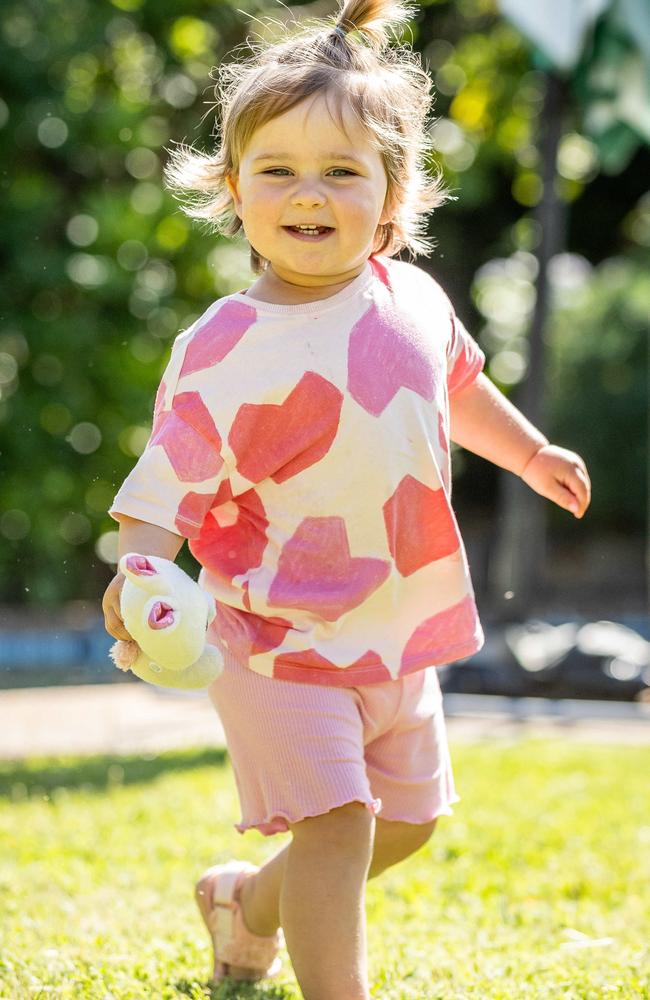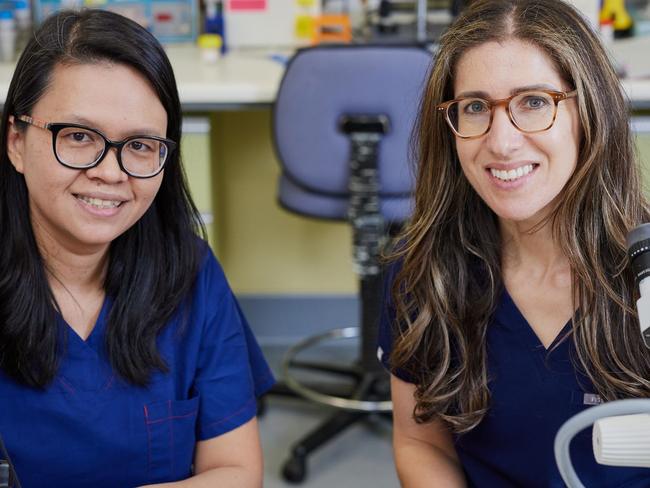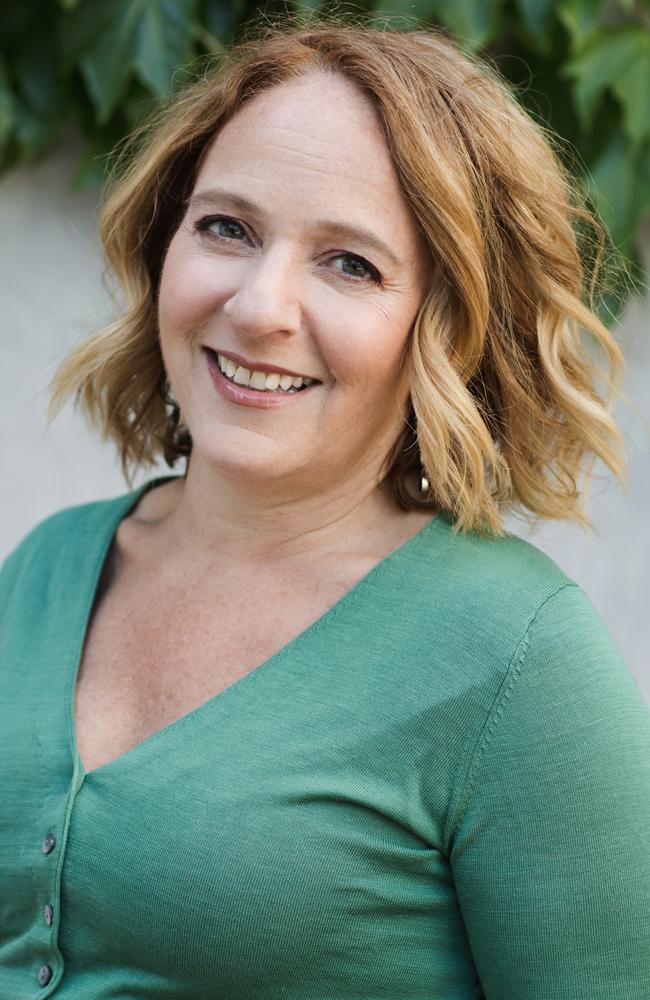Victorian tot the youngest in world to have her fertility preserved by freezing ovarian tissue
Little Hazel was just eight months old when she was diagnosed with a rare cancer, where the treatment would likely have robbed her of the chance to have babies.
Fertility
Don't miss out on the headlines from Fertility. Followed categories will be added to My News.
A Victorian baby diagnosed with a rare cancer has become the youngest child in the world to have her ovarian tissue frozen in a groundbreaking move to preserve her future fertility.
Hazel was just eight months old when doctors discovered a tumour near her pelvis, requiring her to undergo lifesaving chemotherapy and radiation therapy.
Because of the location of the tumour, the aggressive treatment would have likely robbed her of the chance to ever have babies of her own.
Taking away that hope was unfathomable to her parents Lisa, 36, and Richard, 35, who said they needed to be “Hazel’s voice” and find a way to future-proof her fertility.
The couple, who asked that their surname not be used to protect Hazel’s privacy, quickly realised they had just a one-month window of opportunity to find the right experts and plan surgery before Hazel’s radiation therapy started and they lost their chance.

“After the shock diagnosis we started chemotherapy straight away and once we found out that Hazel also needed radiation, that was the point that Rich and I really had a discussion around how to safeguard her fertility for the future,” Lisa said.
“It was something that we had to push for, and ask a lot of questions … and then get the right people involved,” Lisa said. “It was one of those things when you’re so in the moment, you’ve got so many people telling you so much information and what needs to be done, and it’s literally life or death.
“But this was also something that was important to us, and something that was in our control as much as possible was making sure that we spoke up for Hazel. We did everything we could to help with her future decisions.”
In a groundbreaking move in January, doctors at the Royal Children’s Hospital were able to remove one of Hazel’s tiny ovaries, “the size of an M & M chocolate”, and freeze the precious tissue that is now stored at the Royal Women’s Hospital (the Women’s).
Around 80 per cent of young people treated for cancer in Australia survive, but at least one in three will never be able to have their own children because some treatments can cause fertility issues.
Fertility specialist Dr Genia Rozen from the Women’s said that figure was even higher for young girls who needed toxic treatments such as radiation to their pelvis.
“There’s up to a 97 per cent chance that they wouldn’t be able to go on to have biological children,” Dr Rozen said.

“So while there’s obviously challenges with having an operation to remove the ovary, and it is very small in such a young baby, it provides hope for the future and the only opportunity to have a biological child.”
On Thursday the Women’s formally launched a unique new national fertility preservation initiative for children and young adults with cancer.
Funded by a generous $6.4m philanthropic donation, it means children in Australia now diagnosed with certain cancers and needing treatment that puts their fertility at risk can first have ovarian or testicular tissue collected and stored, free.
It brings together the Women’s expertise and the support of philanthropic partners, the Children’s Cancer Foundation and My Room Children’s Cancer Charity.
It will provide not only fertility preservation services, but also expand access to fertility preservation for young people and be a hub for education. Importantly, it will also become a crucial centre for future research to help improve fertility for young cancer patients.
Dr Rozen and Professor Wan Tinn Teh are its co-directors, with the service led by Professor Kate Stern, a fertility specialist, gynaecologist and reproductive endocrinologist.
“We really want to let more people in Australia know that there are fertility preservation options available for children and young adults,” Dr Rozen said.

A year on, little Hazel is thriving; cancer-free and looking forward to Christmas with her family that includes big brother Harvey and sister Harper.
It will be some years before Hazel’s parents start having conversations with their daughter about her stored ovarian tissue and her hopes and dreams for the future.
“We will start those conversations so she knows that if (pregnancy) is something that she’s interested in and wants to do … she’s got that tissue there as a safety net,” Lisa said.
And while the cause of her cancer was a genetic lottery, thanks to the vision of her parents and the promise of modern medicine, Hazel’s future fertility has not been left to chance.
AT A GLANCE
• Up to 70 per cent of young cancer patients will have significant impairment of fertility.
• Cancer survivors are at least 39 per cent less likely to be able to have their own children.
• Only about 15 per cent of young cancer patients in Australia access fertility preservation before starting cancer treatment. In rural areas, the figure is as low as 4 per cent.




